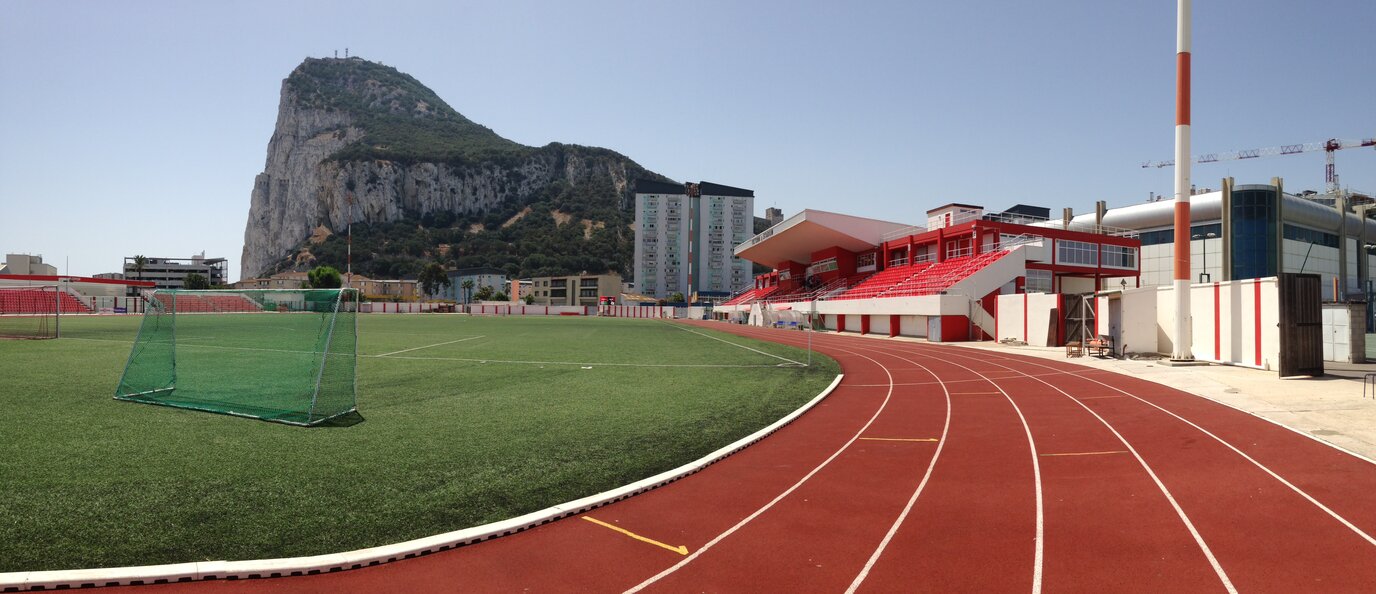
Gibraltar is set to host its first major sporting event later this month, adding to the tiny territory’s impressive and often overlooked sporting history
With the recent heavyweight rematch between Dillian Whyte and Alexander Povetkin being relocated to Gibraltar for COVID-19 reasons, questions must be raised about the sporting prowess of this tiny British territory. Appearing on maps almost as an afterthought under Spain, you would not expect ‘The Rock’ to have an illustrious sporting history. Yet, for a region of around 33,000 people (less than Canvey Island, for example), they have often punched above their weight when it comes to athletic endeavour.
Perhaps Gibraltar’s greatest claim to fame is being the birthplace of tag rugby in the 1980s, when the lack of grass pitches made an alternative to the contact game necessary. As an overseas territory of the U.K. since 1713, the Gibraltarian Rugby Football Union believe that they deserve more international recognition from the game’s authorities. The sport, despite limited resources, is continuing to develop and will only grow in the future, potentially with a team in the improving Spanish league.
Due to their small population, we must analyse their performance at the Island Games (despite being the only member to not be an island), instead of the Olympic or Commonwealth Games. Gibraltar hosted the Island Games in 1995 and 2009 and have often finished ahead of the larger islands of Iceland and Greenland in the medal tables. The 5,000-seat Victoria Stadium offers a fantastic venue for the region and has hosted many events across a variety of sports.
“The 5,000-seat Victoria Stadium offers a fantastic venue for the region
Gibraltar has a long footballing history, with the seventh oldest football association in the world, but they only played their first UEFA match in 2013, earning a respectable 0-0 draw with Slovakia. They have six wins to their name, including beating an Armenia team led by then-Arsenal star Henrikh Mkhitaryan, and won promotion from their 2020-21 UEFA Nations League group. Occasionally, they have been thrashed by footballing powerhouses in qualifying tournaments, such as a 9-0 drubbing by Belgium in 2017, but these sorts of results are common for all minnows of European football.
Without disrespecting the leagues in Gibraltar, the players do not face the likes of Eden Hazard and Romelu Lukaku on a weekly basis. Famously, they earned a draw with the mighty Real Madrid in 1949, in a true David versus Goliath story. Gibraltar may never win or even qualify for a major tournament, but they have produced some exceptional results in their short history.
“Gibraltar has gained worldwide attention for their performances at the World Cup of Darts
Finally, despite some success in minor cricket and shooting leagues, they have gained worldwide attention for their performances at the World Cup of Darts. The amazingly named dynamic duo of Dyson Parody and Dylan Duo have represented their country almost every year for a decade, highlighted by a famous victory over Italy in 2015. They may not be able to compete with the powerhouses of England, Wales and the Netherlands, but they have performed respectably against many of the lesser darts nations.
So, with the first major sporting event due to be held on The Rock on 27th March, the future of Gibraltarian sport looks bright. Amongst European minnows, perhaps only Monaco can argue to have a longer sporting history and, as they move forward, their position will only rise. In the future, sun, sea and sport on the Costa del Sol seems like an attractive proposition.
Like this? Check out more from Redbrick Sport:
The Greatest Male Athletes of All-Time (Part 2)

Comments